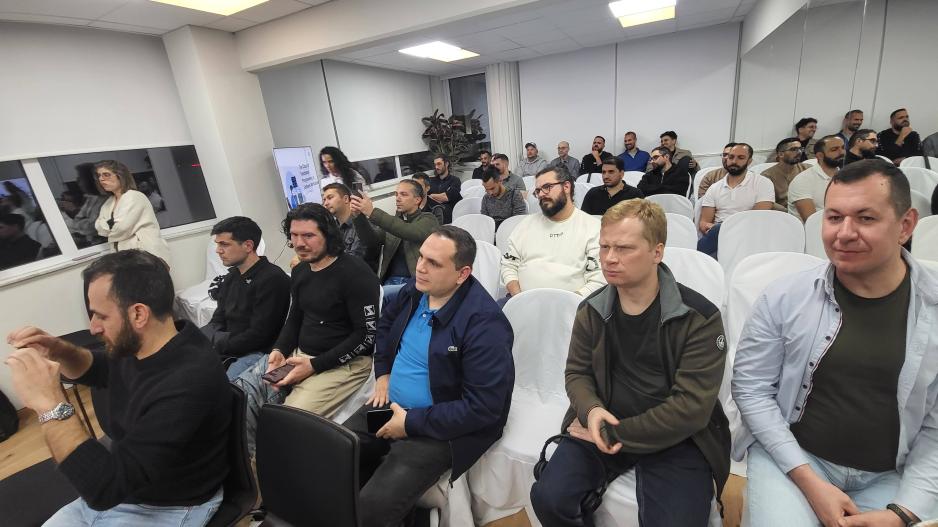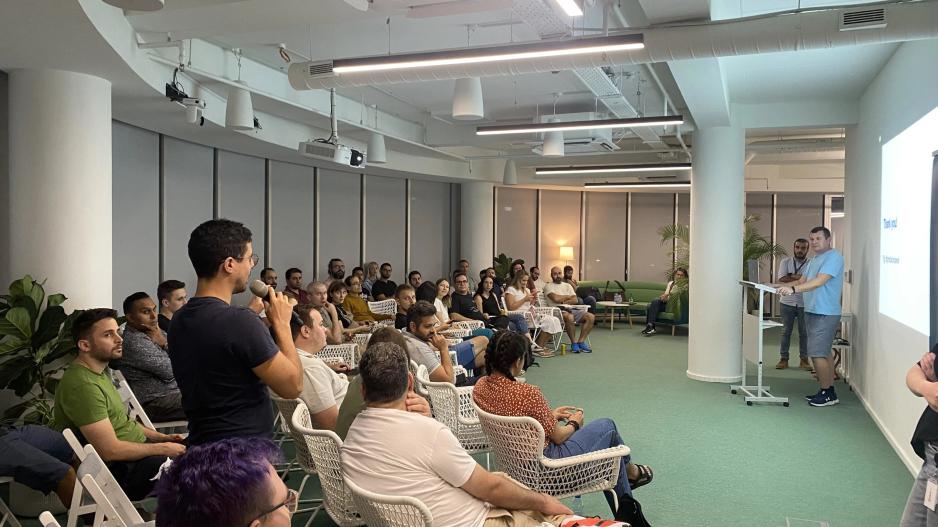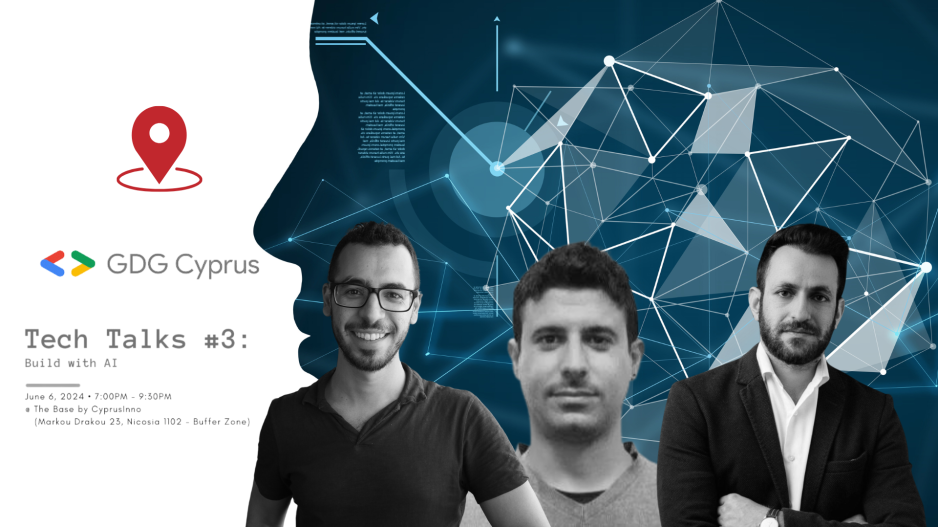AI in Action: Behind the Scenes of Tech Talks #3
Nicolas Ioannou, Michael Mavris, and Mike Yerou Talk About the Inspiration Behind the Theme, the Practical Applications of Gemini AI, and the Ethical Considerations of AI in Education
Tech Talks #3: Build with AI, presented by Pale Blue and SocialTech Lab under the Google Developer Group Cyprus, promises to be an event of immense relevance in today's technology-driven world. Set to take place on June 6, 2024, at The Base by CyprusInno in Nicosia’s historic Buffer Zone, the event will highlight the transformative power of AI in various domains and offer attendees insightful discussions, practical demonstrations, and ample networking opportunities.
In our interview with organizers Nicolas Ioannou, Michael Mavris, and Mike Yerou, we explore the inspiration behind the "Build with AI" theme and what attendees can expect from this exciting installment of Tech Talks. Our discussion covers the practical applications of AI, particularly through the Gemini API, ethical considerations in AI-driven education, and the broader impact of AI advancements across industries. The organizers share their vision for democratizing AI, fostering community engagement, and the potential of AI to revolutionize various sectors, making this a must-attend event for anyone interested in the future of technology.

Mike Yerou: We're drawing inspiration from the 'Build with AI' theme, which is part of a global series of events organized by Google Developer Groups (GDGs). GDGs are volunteer communities for people passionate about technology.
These “Build with AI” event series center around exploring the practical applications of AI for individuals and businesses, particularly through Google Cloud Platform APIs like the Gemini API, which will be a key focus of our event.
This event is all about getting hands-on with AI, not just theory. That's why we've chosen a unique application to showcase the potential of these new AI capabilities and inspire creative uses of this technology.
Nicolas Ioannou: Attendees can expect a journey of discovery and experimentation as they follow our exploration of Google Gemini’s competence and effectiveness. In addition, this could be your missing step-by-step guide on how to get started with using AI and building with AI.
We'll showcase how Gemini AI can analyze your guitar-playing technique through pre-recorded video demonstrations. We'll explore the possibility of using Gemini to suggest personalized practice exercises and a roadmap toward guitar mastery.
There are also ethical considerations for AI-powered music education. Can AI truly capture the human touch in learning an art form like music? Will AI’s limitations send us down a path of misinformation and bad advice?
Furthermore, since this is a technical talk, we will use Gemini’s API to create the basis of a software project and showcase some technical capabilities.
Lastly, the session will be concluded with Q&A and networking.
Mike Yerou: The most exciting developments in AI right now center around the continuous evolution of Large Language Models (LLMs).
LLMs have been a game-changer, pushing the boundaries of what's possible with AI. But what's truly groundbreaking is how these models are simultaneously becoming smarter and more accessible. Traditionally, LLMs required immense computational power, limiting their use to well-funded research labs and big companies. However, the development of optimized models and advancements in efficient hardware are making LLMs more affordable and even capable of running on mobile devices.
This democratization of AI has the potential to empower individuals and businesses alike, fostering innovation across a wide range of fields
This shift from the cloud to the edge opens a new frontier for AI. The possibilities when powerful language processing tools are readily available running on personal devices are remarkable. This democratization of AI has the potential to empower individuals and businesses alike, fostering innovation across a wide range of fields. The future of AI, fueled by LLM advancements, is exciting with possibilities waiting to be explored.
Nicolas Ioannou: We're already seeing AI make a difference in various industries beyond technology. For instance, healthcare utilizes AI for medical diagnoses, protein structure analysis, etc. This trend will likely accelerate, with AI becoming a valuable companion across different fields.
Education is another prime example. AI tutors can assist teachers in the classroom and provide personalized learning for students outside of it. Imagine an AI that gives you feedback on your guitar playing or helps you mix and master a song! AI has the potential to significantly lower the barrier to entry for many skills and make education a life-long venture.
I want to see AI applied in areas that impact our day-to-day lives. Banking, politics, accessibility, emergency situations, etc. Why not use AI to analyze public opinion and inform policy decisions in a more democratic way? Or help less tech-savvy people navigate our world (e.g. help with their mobile banking)? The potential for creative applications with meaningful impact is vast, as long as we use it correctly. We need to be very careful in training unbiased models to avoid inequalities and discrimination.
Michael Mavris: We observed that Cyprus hosts several distinct tech communities, including expats, Greek Cypriots, and Turkish Cypriots. Recognizing the potential for collaboration and growth, our goal from the beginning has been to unite these communities through Tech Talks. Each Tech Talks event is designed with this purpose in mind.
We dedicate a specific segment entirely to networking, providing attendees with the opportunity to connect, share ideas, and build relationships. This intentional focus on networking not only facilitates valuable synergies but also helps bridge the gaps between these diverse tech groups.
By fostering an environment of collaboration and mutual support, we aim to bring these different tech communities together into one cohesive and thriving community.







